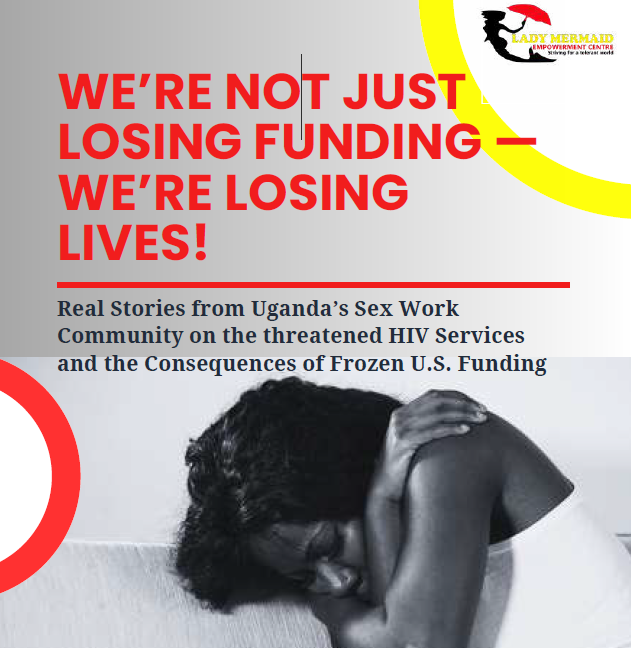
By Sham Kenzi, Sex Worker Peer Leader, Lady Mermaid Empowerment Centre (LMEC)
My name is Sham Kenzi (preferred name). I’m a sex worker, an HIV advocate, and the co-founder of the Lady Mermaid Empowerment Centre (LMEC), a frontline sex worker-led organization in Uganda.
I’ve lived with HIV for 15 years. For most of my life, I’ve spoken boldly about it. I’ve stood on stages and walked into boardrooms with confidence. I’ve told people: You can live positively. I believed that. I still do.
But today, I’m afraid.
Since U.S. HIV funding was temporarily frozen at the beginning of 2025, panic has been spreading — in communities, in clinics, in Drop-In Centres (DICs), and inside me. For the first time in decades, I’m scared I won’t have access to the medicine that has kept me alive.
Like many sex workers, I’m moving from one facility to another, from DIC to DIC, trying to find extra ARVs. I’m stocking what I can — not because I don’t believe in the system, but because the system is shaking, and I don’t know how long it will hold.
In our communities, sex workers are already sharing ARVs. They’re cutting doses, swapping regimens — doing whatever it takes to make sure everyone has something in case the funding doesn’t return. Even when the drugs don’t match. Even when it could lead to resistance or serious harm.
One sex worker has a few pills. Another has none. So they split them. That’s how desperate it has become.
We built this movement so that sex workers living with HIV could live proudly, openly, and supported. But when health systems break, even the most empowered are forced back into survival mode.
When advocates like me start rationing pills, it means the movement is bleeding from within.
This fear doesn’t discriminate. Whether you’re a peer leader, a nurse, a founder, or an Executive Director — if you rely on ARVs, you’re vulnerable now.
We are doing our best to hold the community together. But behind the meetings, the tweets, and the advocacy — there is real fear. Quiet. Heavy. Spreading.
I’ve survived stigma, violence, and poverty. But today, I’m afraid of losing the one thing that has kept me alive.
We’re not asking for pity. We’re asking for reason. If treatment stops — if ARVs disappear — decades of progress and thousands of lives will be lost.
This isn’t a future problem. It’s happening now — in slums, in rural areas, in hotspots where sex workers live, work, and now, fear they are nearing death.
I’m still standing. But I’m standing on a trembling floor.
We are not just at risk of losing funding.
We are at risk of losing everything.
We are at risk of losing life.



